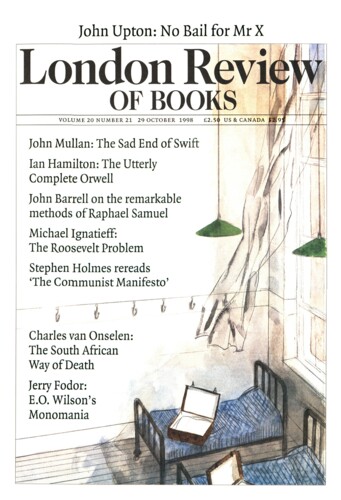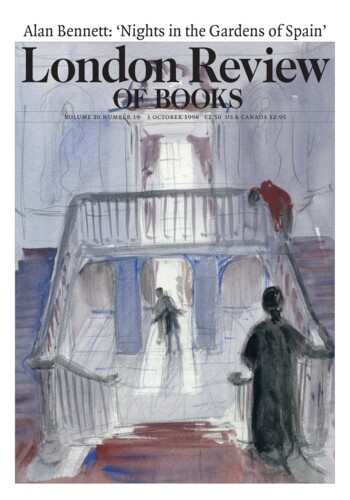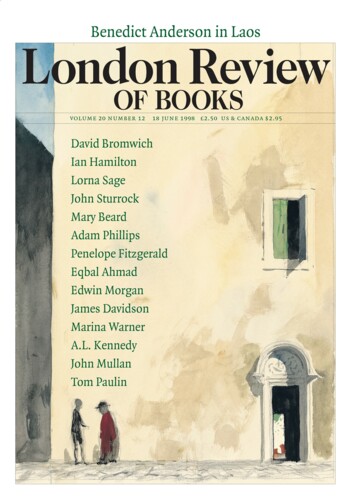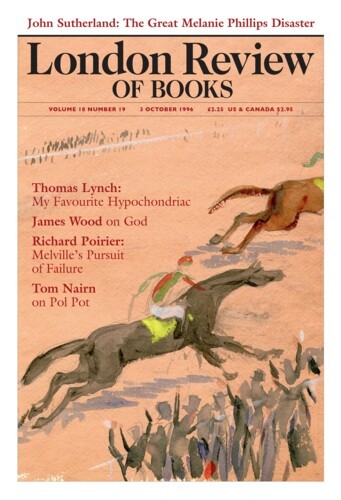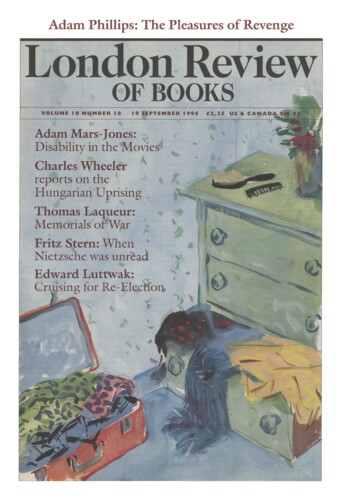Plenty of Pinching: The Sad End of Swift
John Mullan, 29 October 1998
Jonathan Swift’s last formal composition, before he slipped into the dementia that swallowed him for the last five years of his life, was his own epitaph. In May 1740 he made his will, fastidiously apportioning his property and specifying arrangements for his interment. He stipulated that he be buried ‘as privately as possible, and at Twelve o’clock at Night’ in the great aisle of Dublin’s St Patrick’s Cathedral, where he had been Dean since 1714. A tablet of black marble was to be fixed to the wall ‘with the following Inscription in large Letters, deeply cut, and strongly gilded’:‘
